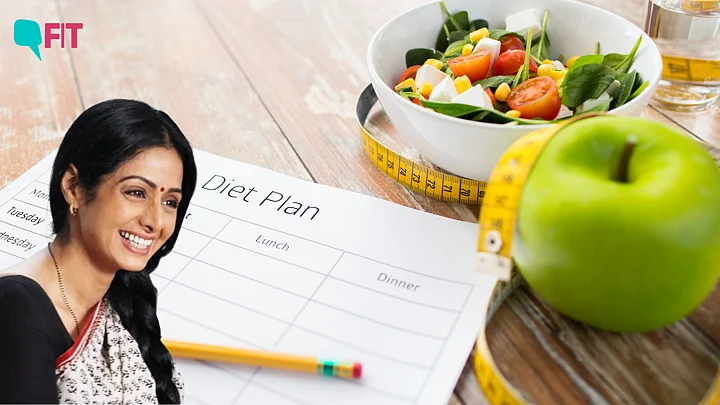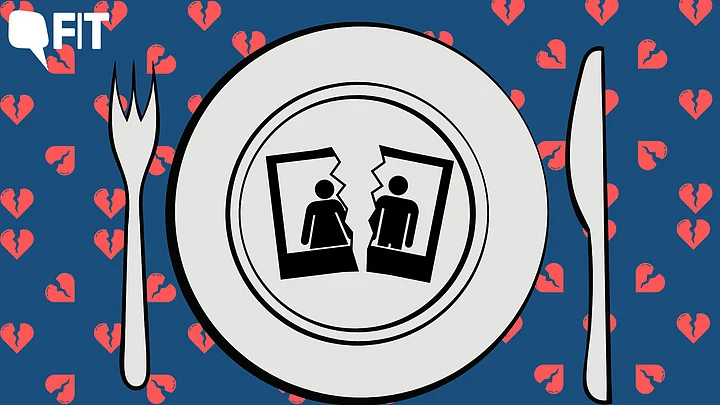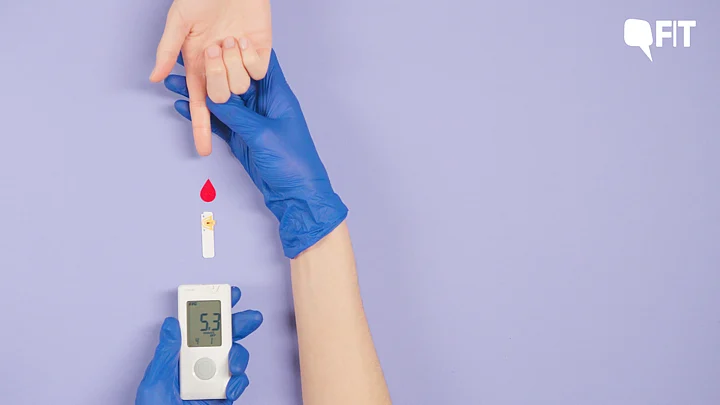"Doctors kept telling Sridevi, ‘You have low BP (blood pressure) so do not follow a severe diet and don’t avoid salt.’ Most women believe salt increases water retention, and that’s why they feel puffy. That was one reason. I would also tell her not to completely avoid salt. I would also ask her to include a pinch of salt when having salad."
After years of silence on the subject, filmmaker Boney Kapoor, speaking to the media recently, claimed that Sridevi’s death in 2018 was "not natural but accidental" – and was allegedly a result of her following fad diets.
"She wanted to make sure she’s in good shape so that, on screen, she looks good. From the time she was married to me, she had blackouts on a couple of occasions, and the doctor kept on saying she had a low blood pressure issue,” Kapoor claimed.
FIT spoke to Dr Namita Nadar, HOD, Dietetics, at Noida’s Fortis Hospital and Dr Priyanka Rohatgi, the chief nutritionist at Apollo Hospital, to understand the health impact of a low-salt diet, especially on women.
What is a low-salt diet?
Salt, like sugar, is a micronutrient that attracts water. For people who snack a lot on packaged food, the salt content leads to water retention in their body and can cause bloating or lead to an electrolyte imbalance.
A low-salt diet is a fad dieting method, owing to which people have been cutting out salt from their meals.
But what people don’t realise is, Dr Priyanka Rohatgi says, that water retention can also happen if people don't sleep or have an hormonal imbalance.
Dr Namita Nadar agrees. When people don’t realise that there are many reasons why they can feel bloated, their instinct is to cut out salt.
But that’s not healthy. Dr Rohatgi explains that salt is required to maintain the body’s muscle tone and for the body to function normally.
What are the health effects that women can have if they go on low-salt diets?
Dr Nadar explains that our body needs 5-8 grams of salt each day.
If this need isn’t fulfilled, we can experience:
Nausea
Dizziness
Blackouts
Low blood pressure
Muscle cramps or soreness
Hair loss
Electrolyte imbalance
Severe headaches
Migraine
Dehydration
Muscle tone weakness
Constipation
Irregular heart rate
Fluctuations in blood sugar
Extreme weakness
There are other long-term impacts as well.
“Carbohydrates and salts are required for a healthy gut microbiome. You can develop Irritable bowel syndrome (IBS), your immunity will weaken, and your body might not accept certain foods after a while if you cut these out of your diet.”
Is a low-salt diet recommended to anyone at all?
Yes, it is. A low-salt diet is recommended to certain medical groups – people who have kidney problems, people who are on dialysis, have hypertension or high blood pressure, among others.
But even these medical groups are not asked to cut off salt from their diets completely.
“They need 3–4 grams of salt per day. They are asked to switch to low-sodium salts like Himalayan salt, rock salt,” Dr Nadar says.
Why are middle-aged women following low-salt diets?
“Women are told that they need to look a certain way which is why they go on these fad diets or starve themselves.”Dr Namita Nadar
A 2022 study, published in Sage Journals, showed that interpersonal relationships and media often influence women to adopt unhealthy dieting and weight control methods.
Dr Rohatgi concurs. She says from experience that more and more people who are not qualified practitioners are swearing by these on social media, which is leading to these diets becoming a fad.
She adds that there are multiple kinds of crash diets that middle-aged women have been following:
Liquid diets
No sugar
No water
Ketogenic diet
But this is harmful to people’s health, especially middle-aged women who are nearing menopause or perimenopause. Their bodies are already going through changes and hormonal imbalances.
“Middle-aged women often have nutrient deficiencies , their bones are aging, they need more protein, micronutrients, vitamin D, etc. They are at risk of bone loss, muscle loss, and osteoporosis. Any kind of fad diet would only do harm to them.”Dr Namita Nadar
In fact, a study published in the Journal of Nutrition and Metabolism in 2021 pointed out that women are losing out on “adequate nutritional intake” due to these crash diets.
Are there healthier diet options that middle-aged women who want to lose weight can follow?
Yes. Both Dr Nadar and Dr Rohatgi suggest:
Opt for a calorie deficit diet
Practice portion control
Add fiber to your diet
Opt for a plant-grown diet
Avoid processed foods
Try to be active physically
Drink enough unsweetened fluids throughout the day to flush out any toxins
“Do listen to your body and go for regular health checkups.”Dr Priyanka Rohatgi
(At The Quint, we question everything. Play an active role in shaping our journalism by becoming a member today.)





